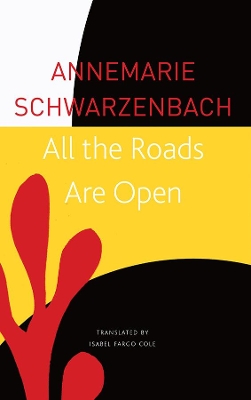
brokentune
Written on Dec 18, 2014
"The gist of our dialogue had been that if she was mad I was mad too: I was unwilling to let myself be strangled by that prudent life that everybody advocated. I also was convinced that— whether we succeed or not— it is our job to search for the significance of life."
The Cruel Way and Alle Wege Sind Offen (published in English as All the Roads are Open) are two accounts of an incredible road trip. In 1939, Annemarie Schwarzenbach and Ella Maillart - both women were Swiss journalists and experienced travelers - set off from their native Switzerland on the eve of WWII to escape the madness of Europe and drive (yes, drive) across Europe, Turkey, Persia (Iran) to Afghanistan (and India if they can reach it).
Though, the wish to escape was probably more AS' motive. EM quite openly discusses that her motive was to help her friend (AS) to shake a morphine addiction and to recuperate from bouts of depression - descriptions of both are described quite vividly and (as far as I can tell) earnestly in The Cruel Way.
Maillart's book (The Cruel Way) was published in 1947 (five years after AS' death), and on request of AS' family, Maillart disguised AS as the character Christina.
Schwarzenbach's account Alle Wege Sind Offen was published in 2008, though some of her articles were published during the trip.
I originally started reading Alle Wege sind Offen - a journal of her third and last journey from Switzerland to Afghanistan. When I reached the part where she non-nonchalantly mentions that she drove the car into a ditch, I was curious to see what impact this had on her travels and most of all how her travel companion, Ella Maillart, experienced the accident - and whether it would be mentioned in Maillart's book.
It made sense to read both in parallel. Reading both books in parallel was like being told the story in 3D.
It was also quite gut-wrenching. AS' writing is lyrical and reflects her anxieties and weariness. I'm not sure this is deliberate. It feels more like her writing is inevitably the only true way she can express herself. EM hints at this in her book, too.
"She was harassed by her fight with the doctors: they would not understand that writing was life and food to her, that the regenerative cure of enforced rest applied to dyspeptics and hysterics could not suit her."
EM's writing is a contrast to that of AS - no aloofness to be found here. She's fairly grounded and practical. Because of that, more of the actual circumstances of the trip are revealed.
"Our descent was impressive. The track had been hacked out half -way down a sandy slope. Christina drove, sitting towards the mountain— which was lucky: from my seat it looked as if our off-side wheels were in the void. At some places the crumbling soil was stiffened with a row of faggots. While we skidded round sharp curves, the glistening shale reminded me of the icy track the ski-racers had rushed down six months ago at Zakopane. I said nothing: to this day I am sure that Christina never guessed how soft that ledge was."
Having read the two accounts and looking at how not only the lives of AS and EM but how the world they describe would change shortly after their accounts end, makes for tough reading.
“I am thirty. It is the last chance to mend my ways, to take myself in hand. This journey is not going to be a sky -larking escapade as if we were twenty— and that is impossible, with the fear of Hitler increasing day by day around us. This journey must be a means towards our end. We can help each other to become conscious, responsible persons. My blind way of life has grown unbearable. What is the reason, the meaning of the chaos that undermines people and nations? And there must be something that I am to do with my life, there must be some purpose for which I could gladly die or live! Kini . . . how do you live?”
The reward for having read both books is that I get a better understanding of the world they traveled, a world that would disappear shortly after the trip. That I learned much about the attitudes of travelers and people they meet, attitudes sometimes so liberal and forward thinking that it is surprising and terrifying to know that only a few decades later it would seem that the countries they have traveled in had always been closed to visitors.
